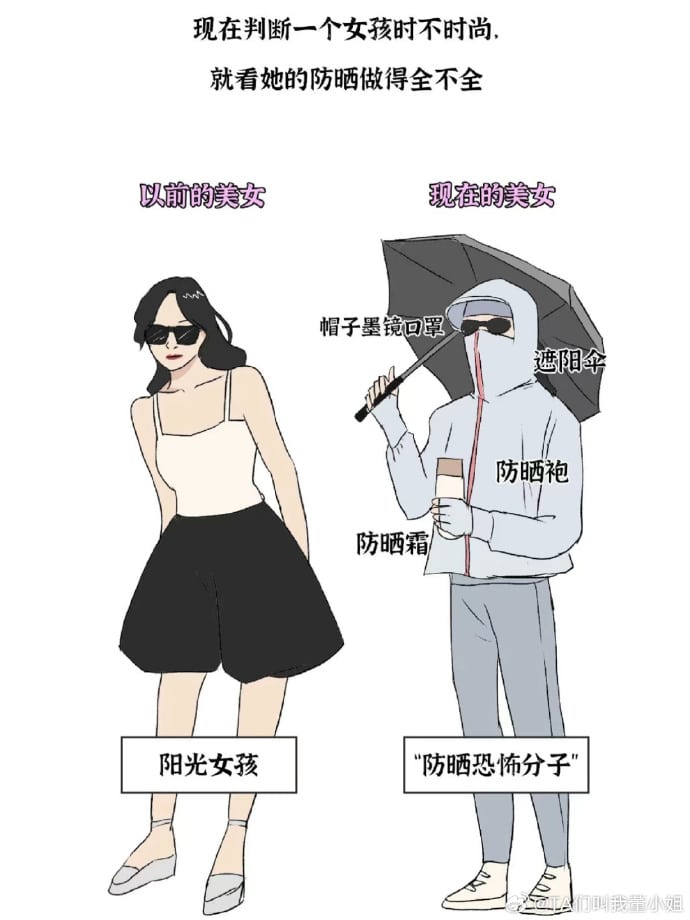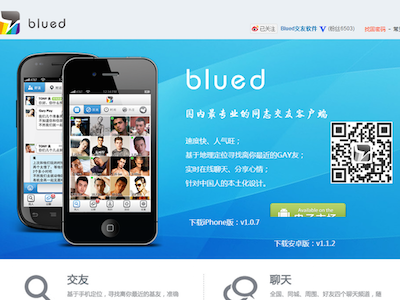China Brands, Marketing & Consumers
Top 10 of Chinese Apps by What’s on Weibo
A top 10 of the most useful and funny Chinese apps.
Published
9 years agoon

What’s on Weibo brings you a short introduction to China’s fast-growing app market, oversight of alternative Android app stores and a top 10 of the most useful and funny Chinese apps.
Update 2019: We’ve noticed many people like this article. It’s from 2015, so it’s time to get yourself up to date in our Chinese app section that lists new popular apps. Follow us on @whatsonweibo to get the latest.
China is the world’s largest smartphone market. With approximately 520 million smartphone users in Mainland China, mobile app business is booming.
In 2014, Chinese mobile phone users collectively downloaded close to 185 billion apps – 59% of all app downloads worldwide. In comparison: mobile phone users in the United States only transferred 8% of all global app downloads.
China does not only have a flourishing mobile app market, it is also a unique one. Popular Western app services like Twitter or Facebook have been blocked in Mainland China for over five years. Since the end of 2014, all Google services, including Gmail, Google Search, Google Maps or Google Play, have been cut off. The absence of these major Western app services has created a distinctive Chinese app environment, where alternative brands such as Baidu, Weibo or Weixin dominate the market.
Since April 2015, China has officially surpassed the US as Apple’s biggest iPhone market. Although Apple has the number one spot in urban China smartphone sales (27.6% market share), it is Android that takes the crown in terms of application sales revenue.
Popular smartphone brands like Xiaomi, OnePlus, Oppo or Samsung are all based on the Android operating system. In China, the ‘iOs versus Android‘ battle is not an ‘iTunes versus Google Play’ duopoly, as seen elsewhere in the world. Because of the blockage of Google Play and China’s flourishing domestic app market, Chinese Android users download their apps through a variety of app stores.
NewZoo and TalkingData publish a monthly oversight of the top 10 Android App Stores in China. Alternative Android app stores like 360 (360手机助手), MyApp by Tencent (腾讯应用宝), Baidu app store (百度手机助手), the Xiaomi phone store (小米应用商店) or Wandoujia (豌豆荚) are amongst the most popular ones.
Some of these, like 360 or Baidu, are more than just an app store; they are tools to manage your phone by clearing the cache, deleting apps, saving on battery life, etc. Apart from the Baidu app store, Baidu browser and Baidu maps are convenient for anyone visiting or living in China, since Chrome or Google Maps will not work through normal Mainland Internet connections.
With such a giant mobile market and great variety of app stores, the world of China’s apps is like a mobile jungle if you are not familiar with it. What’s on Weibo has therefore selected a top 10 of useful and funny Chinese apps for you:
1. Weixin: the essential app for everyday life
Weixin (微信), also known as WeChat, is China’s most popular smartphone application. It was launched in 2011 by Tencent. The power of this app lies in its multifunctionality; Weixin is Whatsapp, Twitter, Facebook, Paypal, Shazam, Viber and Uber, all combined into one app. It therefore is the essential app for everyday life.
Through Weixin’s chat functions, you can have individual conversations with your friend or make a group chat. There is a large variety of emoji’s to choose from to express your mood. The ‘moments’ function is comparable to Facebook’s timeline, where you can follow what your friends are doing and comment on their pictures.
Through ‘subscription accounts’ it is possible to follow your favorite companies or media sources, from CCTV to McDonalds. Except for a great social media platform, Weixin is also an important way for (Chinese) media and businesses to stay in touch with their audiences. For more information about Weixin, read our Short Guide to China’s Super App or China’s Weixin Revolution.
Weixin is free and is available for iOs and Android users, from iTunes to Google Play or any other app store, both in Chinese and English versions.
2. Sina Weibo: not dead yet
Sina Weibo (新浪微博) is China’s biggest social media platform, comparable to Twitter, launched in August 2009. Recently, many different media have stated that Weibo is dying as a consequence to new rules that required users to register with their real names. More people allegedly switched from Weibo to Weixin, media argued, and Weibo would soon be on the way out as online free speech becomes more and more limited.
Although Weibo is not the platform it used to be, it is still very much alive. The private dimension of Weibo (talking amongst friends) has made room for Weixin, where P2P is the most important form of interaction. Sina Weibo is now a public social media platform and China’s most dominant source of news content, where netizens discuss trending topics of the day. Weibo has 600 million users; around 175 million of them are monthly active users. 70% of Weibo daily traffic comes through its mobile app.
Weibo is free and is available for iOs and Android users, from iTunes to Google Play or any other app store.
3. Taobao: the ultimate mobile shop and more
Taobao Marketplace is one of China’s largest online shopping platforms, comparable to Ebay or Amazon. It was launched in 2003 by China’s Alibaba Group. Taobao is a place where small businesses and individuals can sell products to consumers – anything from clothes to medicine. For the most funny things for sale, check out our top list of unusual things for sale on Taobao. Taobao has 8.4 million annual active merchants, many of whom mainly run their stores through the Taobao app.
Taobao will have more functions in the future besides serving as a shopping platform. Alipay and Sina Weibo launched a new service last week where mobile users can log in through Taobao, Alipay or Weibo to arrange their public service issues, like scheduling marriage registration or paying a traffic fine.
Taobao is free and is available for iOs and Android users, from iTunes to Google Play or any other app store.
4. Pitu: drag queen for a day
Photoapp Pitu (天天P图) is all the rage this year. Never before did a free photo app come with so many possibilities. Like the Meitu app (美图), which is also pretty good, Pitu is a camera and retouch app that offers a myriad of different filters to make you look your prettiest.
But there is much more: Pitu also allows you to play dress up with different make-up styles that look so real that is easy to trick your friends into thinking you actually did your make-up like Lady Gaga or a Peking Opera star. Besides the pre-made make-up sets (under “cosplay”), you can also apply your own make-up and decide on colors of eye-shadow, hair and lips. The app has many different templates to create collages. The ‘cut-out’ section lets you use your face in different backgrounds. Trust us, this is the most entertaining photo app of 2015. You can also take a normal picture of your friends and later turn them into proper dragqueens (sorry!).
天天P图 is free and is available for iOs and Android users, from iTunes to Google Play or any other app store.
5. MyIdol: you’ve never been this fabulous
China's 'deepfake apps' have become so advanced so rapidly, that we'd almost forget that these were the kinds of apps we (or, at least, I) got really excited over just a few years ago. To be honest, I still love it. #myidolapp pic.twitter.com/p7MspRH6om
— Manya Koetse (@manyapan) October 19, 2019
MyIdol (小偶) is arguably one of the most fun apps around at this moment. The app allows users to take a picture of their face and then create their own 3D figure with a wide selection of different eye-colors, hairstyles, clothing and skin tones. You can then let your figure do several things, such as singing a popular song, wishing everybody a happy new year, playing the drums or falling asleep.
Although the app has been around for some time, it has been a rage lately – especially because the effects of the app are so well done. If you choose the right colors for skin, hair and eyes, combined with the right hair and outfit, it is almost as if you are standing there singing yourself.
MyIdol is free and is available for iOs and Android users, from iTunes to Google Play or any other app store.
6. DragonFly FM: discover China’s radio
Dragonfly or Qingting FM (蜻蜓FM) is a top-ranking radio app that offers hundreds of channels from across China, from national to local levels. The app lets users choose from its most popular channels or by category: music, news, audiobooks, comedy, entertainment, opera, etc. A perfect app for anyone who wants to discover China’s most popular music or for those who want to practice their Chinese.
Qingting is free and is available for iOs and Android users, link to app here.
7. DouPai: featured in a Chinese news broadcast
Doupai is free and is available for Android users, app link here.
8. Blued: the ultimate gay app
Blued is a social network app for gays. It is a product of China’s gay website Danlan, that was launched eight years ago. Blued was added as a mobile app in 2012. It can be compared to gay dating app Grindr; users can look for other users based on their location and scan their profiles or hang out in a chatroom. Users can privately connect through chat and arrange a date if there is mutual interest.
The app has over 15 million users. In December 2014, the company received 30 million US dollars from American investors. 3 million of Blued’s users are located outside of China.
Blued is free and is available for iOs and Android users, from Google Play or any other app store.
9. Chef’s Table: play restaurant at home
The luxury of restaurant food in the comfort of one’s own home – this is what the new Chinese app ‘Good Chef’ (好厨师) offers. ‘Good Chef’ allows users to search for specialized cooks based on their location and food preference, and hire them to come and cook in their own home kitchen. As online services like Uber are rapidly gaining popularity all over China, the app’s home cooking service has become a hot business.
‘Good Chef’ was launched in September 2014 and operates in Beijing, Shanghai and Hangzhou. Its formula is simple; users can indicate what kind of food they like (Hunan cuisine, Sichuan style, Shandong food, etc.) and browse the different chefs that can be hired to cook for them in their area. Afterwards, users can rate the chefs with one to five stars and leave a comment about their experience. The system generates a list of top-rated chefs.
As Chinese website Wabei reports, over 20,000 people ordered a chef to cook in their home during the Chinese New Year period. The company currently employs 320 chefs on full-time basis. Founder Xu Zhiyan (徐志岩) has revealed that the start-up company recently raised 5 million USD from investors. The money will be used to expand to more cities in China and invest in product development.
The app is available for both iPhone and Android: www.chushi007.com.
10. Expression Factory: be your own emoticon
The expression factory (表情工厂) has been on the market for quite some time but has remained relatively unknown. The app lets users take a picture of their face, and then use it to create hundreds of different emoticons – from Japanese sumo wrestlers to naughty nurse. The emoticons can be exported to QQ, Weibo or Weixin, where they will be saved to use every time you feel like sending someone your personalised kisses or farts.
表情工厂 is free and is available for iPhone and Android users. If you cannot directly download on iPhone it might be because you’re outside of China, you can try to download online and then transfer via iTunes.
Enjoyed this article? Check out our Top 10 apps for studying Chinese!
– by Manya Koetse
– Appreciate this article and want to help us pay for the upkeep costs of What’s on Weibo? You can do so here! Every penny helps.
©2015 Whatsonweibo. All rights reserved. Do not reproduce our content without permission – you can contact us at info@whatsonweibo.com.
Manya Koetse is the founder and editor-in-chief of whatsonweibo.com. She is a writer, public speaker, and researcher (Sinologist, MPhil) on social trends, digital developments, and new media in an ever-changing China, with a focus on Chinese society, pop culture, and gender issues. She shares her love for hotpot on hotpotambassador.com. Contact at manya@whatsonweibo.com, or follow on Twitter.

Also Read
China Books & Literature
Why Chinese Publishers Are Boycotting the 618 Shopping Festival
Bookworms love to get a good deal on books, but when the deals are too good, it can actually harm the publishing industry.
Published
2 months agoon
June 8, 2024By
Ruixin Zhang
JD.com’s 618 shopping festival is driving down book prices to such an extent that it has prompted a boycott by Chinese publishers, who are concerned about the financial sustainability of their industry.
When June begins, promotional campaigns for China’s 618 Online Shopping Festival suddenly appear everywhere—it’s hard to ignore.
The 618 Festival is a product of China’s booming e-commerce culture. Taking place annually on June 18th, it is China’s largest mid-year shopping carnival. While Alibaba’s “Singles’ Day” shopping festival has been taking place on November 11th since 2009, the 618 Festival was launched by another Chinese e-commerce giant, JD.com (京东), to celebrate the company’s anniversary, boost its sales, and increase its brand value.
By now, other e-commerce platforms such as Taobao and Pinduoduo have joined the 618 Festival, and it has turned into another major nationwide shopping spree event.
For many book lovers in China, 618 has become the perfect opportunity to stock up on books. In previous years, e-commerce platforms like JD.com and Dangdang (当当) would roll out tempting offers during the festival, such as “300 RMB ($41) off for every 500 RMB ($69) spent” or “50 RMB ($7) off for every 100 RMB ($13.8) spent.”
Starting in May, about a month before 618, the largest bookworm community group on the Douban platform, nicknamed “Buying Like Landsliding, Reading Like Silk Spinning” (买书如山倒,看书如抽丝), would start buzzing with activity, discussing book sales, comparing shopping lists, or sharing views about different issues.

Social media users share lists of which books to buy during the 618 shopping festivities.
This year, however, the mood within the group was different. Many members posted that before the 618 season began, books from various publishers were suddenly taken down from e-commerce platforms, disappearing from their online shopping carts. This unusual occurrence sparked discussions among book lovers, with speculations arising about a potential conflict between Chinese publishers and e-commerce platforms.
A joint statement posted in May provided clarity. According to Chinese media outlet The Paper (@澎湃新闻), eight publishers in Beijing and the Shanghai Publishing and Distribution Association, which represent 46 publishing units in Shanghai, issued a statement indicating they refuse to participate in this year’s 618 promotional campaign as proposed by JD.com.
The collective industry boycott has a clear motivation: during JD’s 618 promotional campaign, which offers all books at steep discounts (e.g., 60-70% off) for eight days, publishers lose money on each book sold. Meanwhile, JD.com continues to profit by forcing publishers to sell books at significantly reduced prices (e.g., 80% off). For many publishers, it is simply not sustainable to sell books at 20% of the original price.
One person who has openly spoken out against JD.com’s practices is Shen Haobo (沈浩波), founder and CEO of Chinese book publisher Motie Group (磨铁集团). Shen shared a post on WeChat Moments on May 31st, stating that Motie has completely stopped shipping to JD.com as it opposes the company’s low-price promotions. Shen said it felt like JD.com is “repeatedly rubbing our faces into the ground.”
Nevertheless, many netizens expressed confusion over the situation. Under the hashtag topic “Multiple Publishers Are Boycotting the 618 Book Promotions” (#多家出版社抵制618图书大促#), people complained about the relatively high cost of physical books.
With a single legitimate copy often costing 50-60 RMB ($7-$8.3), and children’s books often costing much more, many Chinese readers can only afford to buy books during big sales. They question the justification for these rising prices, as books used to be much more affordable.
Book blogger TaoLangGe (@陶朗歌) argues that for ordinary readers in China, the removal of discounted books is not good news. As consumers, most people are not concerned with the “life and death of the publishing industry” and naturally prefer cheaper books.
However, industry insiders argue that a “price war” on books may not truly benefit buyers in the end, as it is actually driving up the prices as a forced response to the frequent discount promotions by e-commerce platforms.
China News (@中国新闻网) interviewed publisher San Shi (三石), who noted that people’s expectations of book prices can be easily influenced by promotional activities, leading to a subconscious belief that purchasing books at such low prices is normal. Publishers, therefore, feel compelled to reduce costs and adopt price competition to attract buyers. However, the space for cost reduction in paper and printing is limited.
Eventually, this pressure could affect the quality and layout of books, including their binding, design, and editing. In the long run, if a vicious cycle develops, it would be detrimental to the production and publication of high-quality books, ultimately disappointing book lovers who will struggle to find the books they want, in the format they prefer.
This debate temporarily resolved with JD.com’s compromise. According to The Paper, JD.com has started to abandon its previous strategy of offering extreme discounts across all book categories. Publishers now have a certain degree of autonomy, able to decide the types of books and discount rates for platform promotions.
While most previously delisted books have returned for sale, JD.com’s silence on their official social media channels leaves people worried about the future of China’s publishing industry in an era dominated by e-commerce platforms, especially at a time when online shops and livestreamers keep competing over who has the best book deals, hyping up promotional campaigns like ‘9.9 RMB ($1.4) per book with free shipping’ to ‘1 RMB ($0.15) books.’
This year’s developments surrounding the publishing industry and 618 has led to some discussions that have created more awareness among Chinese consumers about the true price of books. “I was planning to bulk buy books this year,” one commenter wrote: “But then I looked at my bookshelf and saw that some of last year’s books haven’t even been unwrapped yet.”
Another commenter wrote: “Although I’m just an ordinary reader, I still feel very sad about this situation. It’s reasonable to say that lower prices are good for readers, but what I see is an unfavorable outlook for publishers and the book market. If this continues, no one will want to work in this industry, and for readers who do not like e-books and only prefer physical books, this is definitely not a good thing at all!”
By Ruixin Zhang, edited with further input by Manya Koetse
Independently reporting China trends for over a decade. Like what we do? Support us and get the story behind the hashtag by subscribing:
Spotted a mistake or want to add something? Please let us know in comments below or email us. First-time commenters, please be patient – we will have to manually approve your comment before it appears.
©2024 Whatsonweibo. All rights reserved. Do not reproduce our content without permission – you can contact us at info@whatsonweibo.com.
China Brands, Marketing & Consumers
Chinese Sun Protection Fashion: Move over Facekini, Here’s the Peek-a-Boo Polo
From facekini to no-face hoodie: China’s anti-tan fashion continues to evolve.
Published
2 months agoon
June 6, 2024
It has been ten years since the Chinese “facekini”—a head garment worn by Chinese ‘aunties’ at the beach or swimming pool to prevent sunburn—went international.
Although the facekini’s debut in French fashion magazines did not lead to an international craze, it did turn the term “facekini” (脸基尼), coined in 2012, into an internationally recognized word.

The facekini went viral in 2014.
In recent years, China has seen a rise in anti-tan, sun-protection garments. More than just preventing sunburn, these garments aim to prevent any tanning at all, helping Chinese women—and some men—maintain as pale a complexion as possible, as fair skin is deemed aesthetically ideal.
As temperatures are soaring across China, online fashion stores on Taobao and other platforms are offering all kinds of fashion solutions to prevent the skin, mainly the face, from being exposed to the sun.

One of these solutions is the reversed no-face sun protection hoodie, or the ‘peek-a-boo polo,’ a dress shirt with a reverse hoodie featuring eye holes and a zipper for the mouth area.

This sun-protective garment is available in various sizes and models, with some inspired by or made by the Japanese NOTHOMME brand. These garments can be worn in two ways—hoodie front or hoodie back. Prices range from 100 to 280 yuan ($13-$38) per shirt/jacket.

The no-face hoodie sun protection shirt is sold in various colors and variations on Chinese e-commerce sites.
Some shops on Taobao joke about the extreme sun-protective fashion, writing: “During the day, you don’t know which one is your wife. At night they’ll return to normal and you’ll see it’s your wife.”

On Xiaohongshu, fashion commenters note how Chinese sun protective clothing has become more extreme over the past few years, with “sunburn protection warriors” (防晒战士) thinking of all kinds of solutions to avoid a tan.




Although there are many jokes surrounding China’s “sun protection warriors,” some people believe they are taking it too far, even comparing them to Muslim women dressed in burqas.

Image shared on Weibo by @TA们叫我董小姐, comparing pretty girls before (left) and nowadays (right), also labeled “sunscreen terrorists.”
Some Xiaohongshu influencers argue that instead of wrapping themselves up like mummies, people should pay more attention to the UV index, suggesting that applying sunscreen and using a parasol or hat usually offers enough protection.
By Manya Koetse, with contributions by Miranda Barnes
Spotted a mistake or want to add something? Please let us know in comments below or email us. First-time commenters, please be patient – we will have to manually approve your comment before it appears.
©2024 Whatsonweibo. All rights reserved. Do not reproduce our content without permission – you can contact us at info@whatsonweibo.com.
Subscribe

Weibo Watch: The Future is Here

“Bye Bye Biden”: Biden’s Many Nicknames in Chinese

Enjoying the ‘Sea’ in Beijing’s Ditan Park

A Triumph for “Comrade Trump”: Chinese Social Media Reactions to Trump Rally Shooting

Weibo Watch: Get Up, Stand Up

The Tragic Story of “Fat Cat”: How a Chinese Gamer’s Suicide Went Viral

“Old Bull Eating Young Grass”: 86-Year-Old Chinese Painter Fan Zeng Marries 36-Year-Old Xu Meng

A Brew of Controversy: Lu Xun and LELECHA’s ‘Smoky’ Oolong Tea

Singing Competition or Patriotic Fight? Hunan TV’s ‘Singer 2024’ Stirs Nationalistic Sentiments

Zara Dress Goes Viral in China for Resemblance to Haidilao Apron

Weibo Watch: The Battle for the Bottom Bed

About the “AI Chatbot Based on Xi Jinping” Story

China’s Intensified Social Media Propaganda: “Taiwan Must Return to Motherland”

Weibo Watch: Telling China’s Stories Wrong

Saying Goodbye to “Uncle Wang”: Wang Wenbin Becomes Chinese Ambassador to Cambodia
Get in touch
Would you like to become a contributor, or do you have any tips or suggestions? Get in touch here!
Popular Reads
-

 China Insight3 months ago
China Insight3 months agoThe Tragic Story of “Fat Cat”: How a Chinese Gamer’s Suicide Went Viral
-

 China Music4 months ago
China Music4 months agoThe Chinese Viral TikTok Song Explained (No, It’s Not About Samsung)
-

 China Digital10 months ago
China Digital10 months agoToo Sexy for Weibo? Online Discussions on the Concept of ‘Cābiān’
-

 China Arts & Entertainment12 months ago
China Arts & Entertainment12 months agoBehind 8 Billion Streams: Who is Dao Lang Cursing in the Chinese Hit Song ‘Luocha Kingdom’?


















